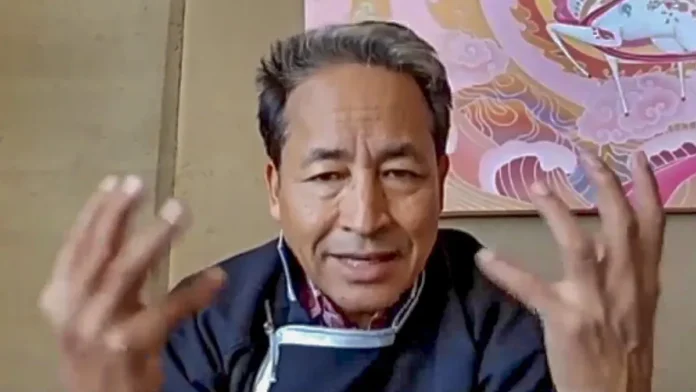Prominent Ladakhi educationist and climate activist Sonam Wangchuk has been arrested just days after a series of violent protests demanding full statehood for Ladakh and constitutional safeguards. His detention has sparked widespread reactions across the Union Territory, with supporters condemning the move as an attempt to silence one of the most influential voices of the region.
Background of the Protests
The arrest comes in the aftermath of large-scale demonstrations in Leh and Kargil, where thousands of people took to the streets to press for Ladakh’s inclusion under the Sixth Schedule of the Constitution, greater autonomy, and protection of land and jobs for locals. What began as peaceful gatherings reportedly turned violent when protestors clashed with security forces, resulting in injuries and multiple detentions.
Why Wangchuk’s Arrest Matters
Sonam Wangchuk, often celebrated as the inspiration for the film 3 Idiots’ character “Phunsukh Wangdu,” has long been associated with grassroots innovation, sustainable development, and environmental activism in Ladakh. In recent years, he has emerged as a strong advocate for local rights and ecological preservation in the face of rising industrial and infrastructural projects.
His arrest is seen as particularly symbolic because Wangchuk has largely pursued non-violent and Gandhian methods of protest, including hunger strikes, to amplify the concerns of Ladakhis.
Government’s Position
Authorities have justified the arrest on grounds of maintaining law and order, stating that Wangchuk’s speeches and mobilization efforts contributed to the heightened tensions. Officials argue that his detention is a preventive step to avoid further escalation. However, no detailed charges have been made public as of yet, fueling criticism about transparency and political intent.
Opposition and Civil Society Response
The move has triggered sharp criticism from opposition parties, rights groups, and civil society activists, who view the arrest as an overreach by the government. Congress leaders and regional political outfits have accused the administration of suppressing democratic dissent instead of engaging with the people’s demands.
Student bodies and environmental organizations across India have also issued statements of solidarity, calling for Wangchuk’s immediate release. Social media platforms have amplified the outcry, with hashtags demanding justice for Ladakh trending nationwide.
Broader Implications for Ladakh
The arrest comes at a time when Ladakh’s political trajectory is under intense debate. Since being carved out as a separate Union Territory from Jammu and Kashmir in 2019, Ladakh has witnessed growing discontent over lack of representation, inadequate safeguards for tribal communities, and fears of demographic change.
By detaining one of the region’s most respected voices, the government risks deepening distrust among locals and giving further momentum to the statehood movement. Analysts caution that rather than quelling unrest, the arrest could intensify calls for autonomy and increase national attention on Ladakh’s demands.
Conclusion
The arrest of Sonam Wangchuk marks a critical juncture in Ladakh’s struggle for political identity and ecological security. While the government insists it acted to preserve peace, critics argue it has only inflamed tensions. As protests continue and calls for Wangchuk’s release grow louder, the coming weeks may prove decisive in shaping the future of Ladakh’s statehood movement.



